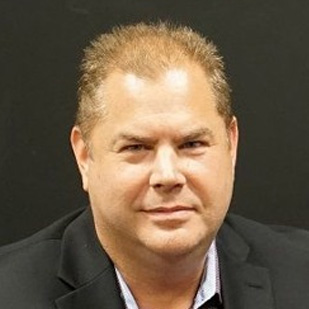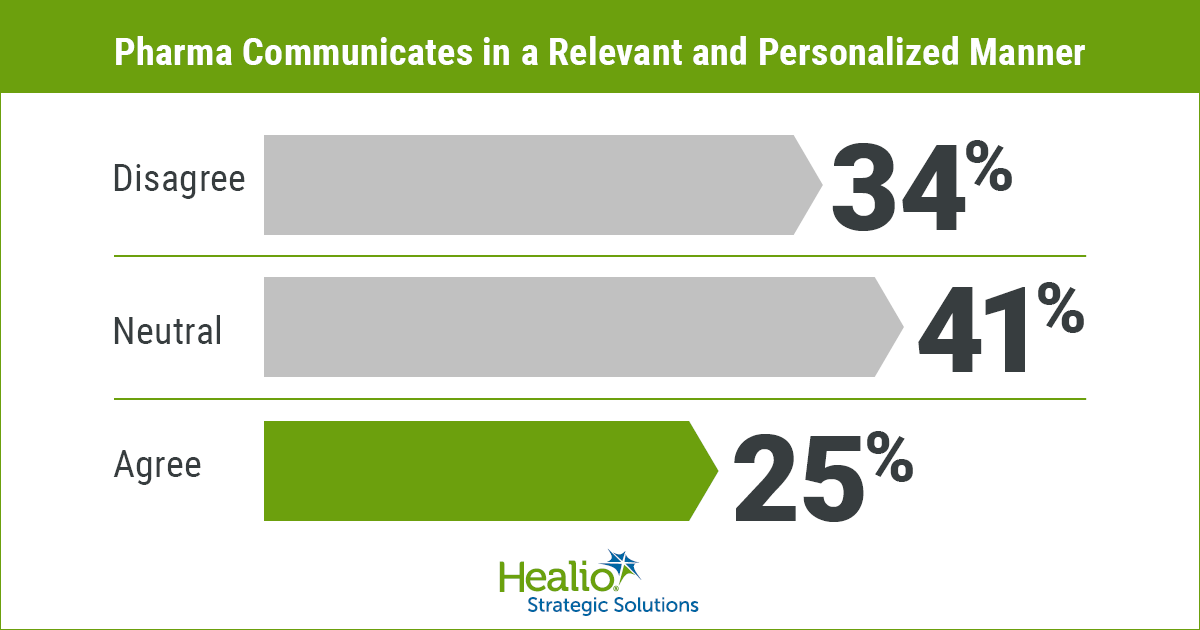Is Pharma Relevant and Personalized to Health Professionals? Survey Says … Not So Much

By Mark Bard, The DHC Group, Co-founder, Managing Partner
Published November 1, 2022

The fundamentals of customer experience are simple – meet (or exceed) the expectations of the customer. Looking deeper, experience is largely driven by giving the customer content, service, and answers they feel are relevant and personalized to them as an individual. The other side of the equation (lack of customer experience) is pushing content that appears to be mass-produced, intended for a broad audience, and does not take into account knowledge, preferences, or past and recent experiences with the brand, company, and representatives.
So how is pharma doing in terms of relevance and personalized content? A recent survey with health professionals as part of a joint project between DHC Group and Healio reveals there is a large gap – or chasm – between what physicians expect and what they receive from pharma. Only 25% of US health professionals report they agree that pharma is providing and relevant and personalized content to them. While a large number sit in the neutral category (41%), fully 34% disagree with the statement — on the far end of the spectrum.

When discussing this research finding at a recent industry event hosted at Pfizer in NYC, the audience of pharma executives and industry thought leaders in attendance did not express disbelief, anger, or outrage. The response was largely – ok, that is not entirely surprising. As an industry, it is not a sustainable long-term option to meet the needs and expectations of only 1 in 4 health professionals. Furthermore, as these health professionals continue to receive relevant and personalized content and services from everyone else they deal with on a professional basis, the bar is only raised higher and higher with each passing year. In other words, just saying still means that perceptions of what is relevant and personalized to me “now” will likely suffer if the status quo remains in pharma content, communications, and services.
Of course it’s not all doom and gloom when looking at the future of the relationship between pharma and health professionals. The past several years have sparked and fueled significant innovation with pharma brands and teams as they were forced to rethink engagement – and content. The reliance on static, compliance and “locked down” content became a point for debate as companies began to scale up projects focused on dynamic content, modular content, and in the end – personalized content based on what that customer wants, needs, and demands. It will take time to make progress with physicians and get to a point where the majority of health professionals agree pharma is delivering relevant and personalized content, services, and experience. One of the primary hurdles within many companies is rethinking the content review process. If brands are generating multiple versions of content, then MLR must reinvent the process much the same way marketing and communications must reinvent the content creation process to account for a world with dynamic versions, multiple iterations, and versions of content based on unique customer preferences.
It will take time, effort, and a continued focus on the customer in the coming years. The good news is that the trends are positive in that brands are working to ramp up content and services aligned with customer preferences and feedback. As those iterative feedback loops between health professionals, sales representatives, medical affairs, and corporate become the norm (and not the exception) we should see the numbers of health professionals agreeing that pharma is relevant and personalized increase over time in future surveys.

